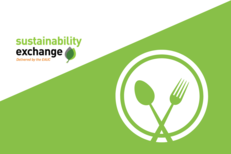- Home
-
Resources
- Biodiversity
- Business and Industry Interface
- Climate Change Adaptation
- Community and Public Engagement
- Energy
- Food and Drink
- Health and Wellbeing
- Leadership
- Learning and Teaching
- Procurement and Supplier Engagement
- Research
- Resource Efficiency and Waste
- Risk
- Staff Engagement and Human Resources
- Student Engagement
- Construction and Renovation
- Travel and Transport
- Water
-
Partners
- AHUA
- AoC
- AUDE
- AUE
- BRE Global
- BUFDG
- Caplor Horizons
- Change Agents UK
- CIBSE
- City of Trees
- Cynnal Cymru – Sustain Wales
- DAERA
- EAUC
- Ecocampus (Belgium)
- Enactus
- FEE EcoCampus
- GuildHE
- HEPA
- IES
- Jisc
- PRI
- PRME
- Salix
- Society for the Environment
- SOS UK - Students Organising for Sustainability
- Student Hubs
- SUPC
- Sustainable Restaurant Association
- The Energy Consortium
- UCU
- USHA
- WRAP
- Supporters
-
Programmes
- Sustainability Consulting Services
- The SDG Accord
- Green Gown Awards
- Scope 3
- Future Graduate Skills: A Scoping Study
- Sustainability Leadership Scorecard
- Living Labs
- Biodiversity on Campus: An EAUC Practical Guide
- EAUC Annual Conference
- Climate Emergency Framework
- Climate Change Adaptation
- A Guide for Members of Governing Bodies
- Making the Business Case for Sustainability
- Sulitest - Sustainability Literacy Test
- Engaging Professional Departments with Sustainability
- Hot Topics
- SORTED Guide to Sustainability in Further Education
- Waste Guide
- Careers
- Regions
- News
- Events
- Jobs
- About





 Except where otherwise stated, content on this site is
licensed under a Creative Commons Attribution 3.0 License.
Except where otherwise stated, content on this site is
licensed under a Creative Commons Attribution 3.0 License.
